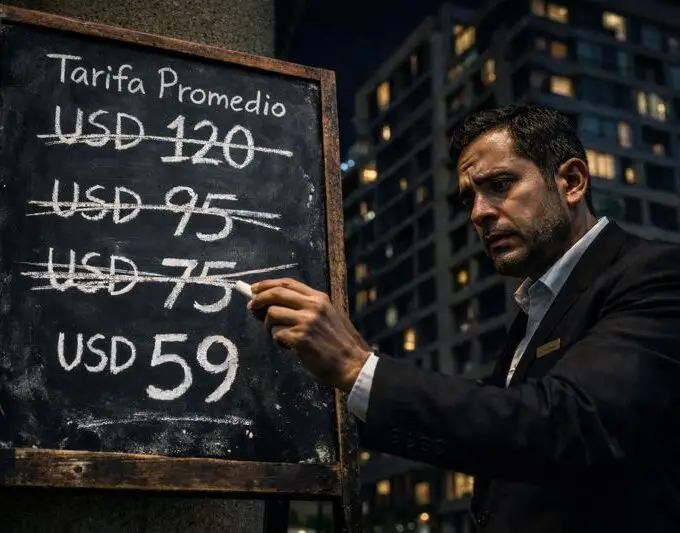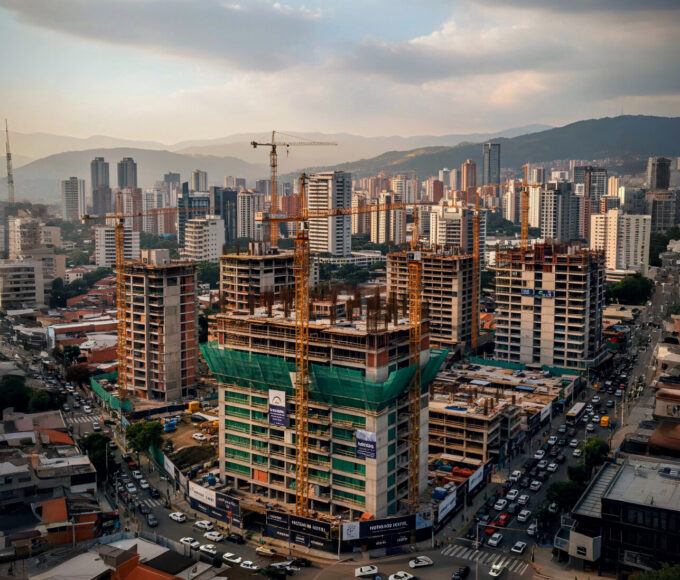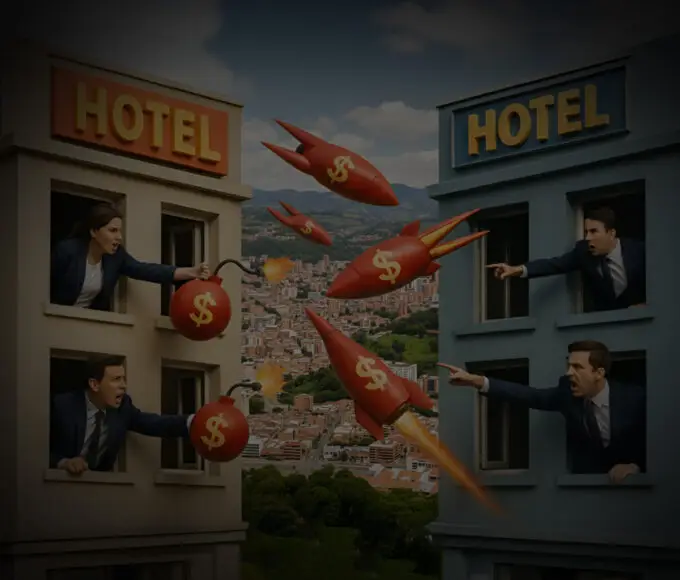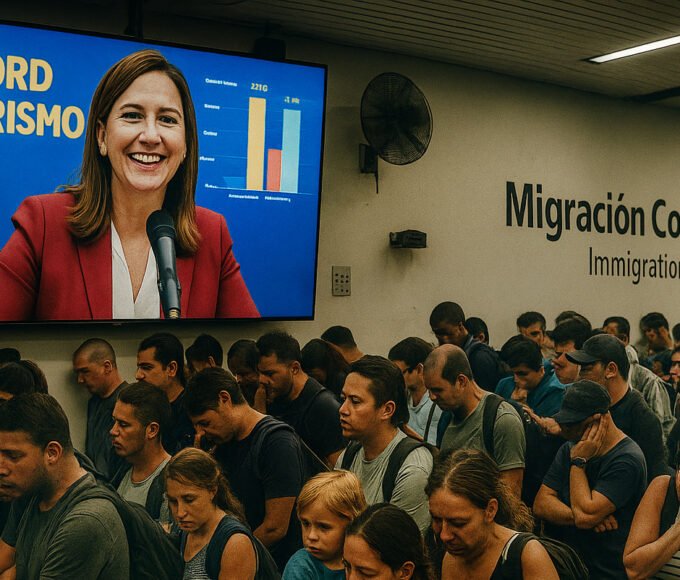
Medellín has no shortage of tourists. It has a surplus of improvisation.
Medellín's tourism market continues to grow. Between 2020 and 2022 we experienced an unprecedented boom, and although the pace has moderated, visitors have not stopped arriving. What did change was the number of beds available: it is growing even faster than demand, often without a solid strategy or operation behind it.
Since 2021, Medellin has gone from 436 active hotels to about 565 (approx.) by 2025. In parallel, Airbnb-type properties have grown from about 5,000 in 2019 to more than 17,000 today. These figures do not come from a single source: we have reconciled them ourselves from press data, records from Medellín's tourism system, Cotelco reports, internal estimates and cross-platform analysis. Everyone wanted to get into the business. But few calculated how many were entering at the same time.
This is not a crisis, it is real competition
I have been saying for more than a year that this was going to happen. Not because I have a crystal ball, but because anyone who has studied a little history or has a basic understanding of economics knows that nothing grows forever. At some point, supply and demand meet. And when that happens, as in all maturing emerging markets, competition becomes real and less prepared or uncompetitive businesses have a hard time.
Today Medellín has more than 58,000 beds available between hotels and tourist accommodations: approximately 30,000 in hotels and 28,000 in Airbnb-type housing, according to our estimates. Most likely, the market will be organized. That the occupancy and rate will be redistributed with more exigency. In that scenario, we think that well-prepared operators and hotels, with a good value offer and well located, will tend to stand out, gain visibility and maintain better indicators. The others will probably have to withdraw or go out of business.
What about the negative spiral?
There are those who believe we are entering a downward spiral: more beds, less occupancy, lower rates, desperate operators lowering prices even further. It's a possibility that exists in disorderly markets. But in our analysis, that is not what is happening in Medellín.
What we are seeing is a rearrangement where rates are adjusted, yes, but with a competitive logic. Entering into a negative spiral -where every drop in occupancy is responded with a rate reduction- is a desperate strategy that completely damages a hotel's profitability. It is a short-term reaction that tends to stifle operators with an uncompetitive proposal. Therefore, rather than a race to the bottom, what is needed is competition focused on efficiency, differentiation and sustained value.
The neighborhood does matter. So does the month
It is not all about oversupply. There are also internal differences that explain the stiffening of competition. A well-operated hotel in El Poblado can maintain an occupancy rate of 80%, while a poorly located one in Downtown does not reach 25%. And this is nothing new: it is the market doing its job.
In addition, Medellín no longer has a homogeneous demand throughout the year. April and May have recently established themselves as weak months, while August, November and December show solid sales. Before 2023, there was no clear seasonality pattern. Today there is, and those who do not understand it can fall into negative spirals.
Competition has also led tourists to become more informed: they now compare neighborhoods, research when it is best to travel, check reviews, verify quality and make more informed decisions. This change in consumer behavior not only impacts immediate bookings, but also shapes long-term market dynamics.
Global competition has already begun
Another clear indication that Medellín is entering a new phase is the arrival of international hotel chains. Hilton, Accor (with projects such as Mama Shelter) and other global brands will soon open hotels with more than 150 rooms in the city. These brands are not exploring the market: they are entering with a clear intention to position themselves and gain market share. Their arrival reflects that they see Medellín as a consolidated destination where it is worth investing seriously.
These brands not only bring with them global marketing, loyalty programs and robust distribution. They also raise the standard of what is expected of a hotel in Medellín. That means that tourists, when comparing options, no longer just see price: they see brand, reputation, operational consistency.
In this context, local operators must improve our offer and service. Because these brands will not only attract new demand; they will also change the perception of the destination and what it means to compete in it. What we must understand is that seeing them arrive is not a threat: it is a validation of the market. Medellin has long since ceased to be a promise to become an important tourist destination, with clearer rules and stronger players.
Our projects prove it
I say it with data and my own experience: our hotels continue to compete well. Not because we are immune to competition, but because they were designed for it. They are well located, designed with intention and operated efficiently. They are projects that don't improvise or speculate: they are designed with intent, adjusted with data and executed with discipline. And that makes all the difference.
As in any competitive market, rates have had to adjust to the new supply and demand realities. But well-planned assets continue to generate value. This is not a matter of luck. It is a logical consequence of having conceived the business with criteria, understanding from the beginning that competition has always been present, but that at some point the market would demand much more.
Let's go back to the beginning: this was predictable.
I have been saying for more than a year that this scenario was inevitable. The disorderly growth of supply could not be maintained without consequences. Medellín does not have a problem of lack of tourists; it has a problem of excessive improvisation.
And when competition intensifies, the cost of being unprepared becomes evident. Some operators lower rates to unsustainable levels. Others make losses, or must convert their hotels to other uses. The price of improvisation can be forced exit from the market.
But that doesn't mean the market is broken. It means it's being cleaned up. And that, in economic terms, is healthy. The hotels that have planned well, executed judiciously and understood the business will continue to compete and prosper. Even new players that enter with a clear proposal and expert guidance will have very good opportunities.
Tourism continues to grow strongly in Medellín. What ended was the fantasy that this was an easy and accessible business for anyone without preparation. During the boom, that perception momentarily came true. But as in any gold rush, after the enthusiasm comes the adjustment.
Today, planning, vision and execution are required. The good news is that those who understand this - and act with judgment and strategy - will enter a competitive market, but still full of opportunities to grow and consolidate.
Alejandro Gonzalez
Founder of Blackroom
Alejandro Gonzalez Uribe
Co-founder of BLACKROOM and MACCA. I'm obsessed with turning good ideas into profitable hotels—built from the user's desire and the investor's logic
Recent Posts
Related Articles
Hotel oversupply in Medellín. More tourists does not mean more reservations.
Let's make one thing clear: Medellín is not empty. Nor did it cease to be...
3,000 new hotel rooms are coming to Medellín. Too much supply?
Tourism growth is not enough when supply grows unchecked During...
Rate war: This happens when Medellín becomes flooded with hotels and Airbnbs without any control.
Medellín continues to grow, but the market has changed. Hotels...
Tourism in Colombia: the paradox of a record without help from the national government
While the Ministry of Commerce celebrates record tourism revenues—more than...












Leave a comment